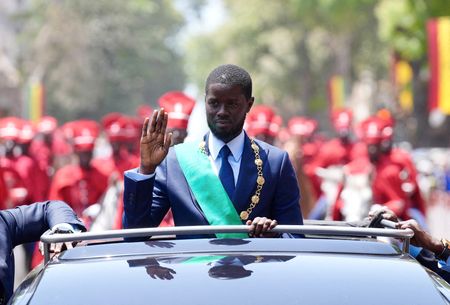ADDIS ABABA (Reuters) -Ethiopia’s prime minister and a rebel group have traded blame for a mass killing in Oromiya, the country’s most populous region, where hundreds of people have died in recent months in escalating violence.
The latest killings took place on Monday in two villages in Kellem Wollega zone, around 400 km (250 miles) west of the capital Addis Ababa, the state-appointed Ethiopian Human Rights Commission (EHRC) said.
Both the EHRC and Prime Minister Abiy Ahmed blamed the Oromo Liberation Army (OLA), a banned splinter group of an opposition party, for the killings, which Abiy called a “massacre”.
OLA spokesman Odaa Tarbii rejected the accusations, saying government-allied militias were responsible for the slaughter, while federal troops recently deployed in the area did nothing to stop it.
Reuters was not immediately able to verify the claims of either side, and most communications with the affected area were down on Tuesday.
Oromiya’s regional administration spokesman did not immediately respond to requests for comment. Government spokesman Legesse Tulu said the number of casualties was under investigation.
Oromiya, which accounts for more than a third of Ethiopia’s population of around 110 million, has experienced spasms of ethnic violence for many years, often rooted in grievances about political marginalisation and neglect by the central government.
Violence has escalated since the OLA formed an alliance last year with the Tigray People’s Liberation Front (TPLF), which has been fighting government forces in the north of the country since November 2020.
“Well before the conflict in northern Ethiopia, there has been widespread impunity for ongoing rights abuses in Ethiopia’s Oromiya region, including in areas already suffering from conflict,” Human Rights Watch said in a report dated July 4.
“Many of these abuses still persist and require urgent international attention.”
While Abiy and forces loyal to him say they want to end the fighting in Tigray, recent bloodshed in Oromiya is a reminder that ethnic rivalries across the country threaten to undermine attempts to end civil conflict.
Since Abiy came to power in 2018 after nearly three decades of firm rule by a TPLF-led government, political reforms have encouraged regional powerbrokers to seek to build ethnic power bases.
The government announced a military crackdown in Oromiya after around 340 people were killed there last month.
The EHRC called for government security forces in Oromiya to be reinforced further in light of the latest attacks.
The region is home to the Oromo, the country’s largest ethnic group, whose members include Abiy. Members of other communities, including the Amhara, Ethiopia’s second biggest ethnic group, also live there.
The EHRC said that the villages caught up in Monday’s violence were mainly populated by Amhara, and that government security forces had reached the area.
Government spokesman Tulu said the ethnicity of the victims was mixed.
“The victims are from all (communities), including Oromo peasants,” he said.
(Reporting by Addis Ababa newsroom; Writing by Hereward Holland and Mike Collett-White; Editing by Duncan Miriri, Raju Gopalakrishnan, Peter Graff and Alison Williams)








